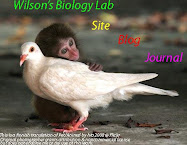Last year, the H1N1 virus, and it's rapid worldwide spread showcased the global system's inability to swiftly and effectively distribute vaccines for newly discovered strains of influenza. In fact, the first H1N1 vaccines were distributed in October of last year, even though the first cases were reported that April. Project GreenVax, which is being led by the Texas Plant-Expressed Vaccine Consortium, looks to fix this problem before another possible pandemic develops.
Part of the reason why the H1N1 vaccines took so long to be distributed is that the process used to create them was very inefficient. Chicken eggs were used to create most of the vaccines; doctors would slightly open an egg and inject the virus into the fluid surrounding the embyro. The virus multiplies for a few days, until the eggs are opened again to remove the virus, purify it, and prepare it for use in a vaccine. This process takes up to 2 weeks in total, and doesn't produce a large number of vaccines. According to the U.S. Department of Health and Human Services, it would take 900 million eggs to produce 300 million vaccines.
The scientists behind Project GreenVax believe that they are able to create vaccines at a much more productive rate, and much quicker using plants. By using essentially the same process, just substituting plant leaves for chicken embryos, it is possible to reduce the time needed to create the vaccine and increase the number of vaccines that could be made. The only problem is that, despite more than a decade of research, there still haven't been "any approved vaccines made using the plant-based approach".
This is most likely because of the fundamental differences between plant cells and animal cells. However, Project GreenVax is devoted to finding a way to use plants to create a more effective method of creating vaccines. They have a combined $61 million in funding, and start research next week.
NOTE: The powerpoint should be up sometime before Wednesday
Monday, March 1, 2010
Subscribe to:
Post Comments (Atom)





I like how this relates to something new that is getting a lot of media attention. It is a good way of grabbing the reader.
ReplyDeleteThis is good because we live in a time where vaccines are at a high demand.
ReplyDeleteHmm... this in cool. I hope the plant way works, because the chicken egg way seems very inefficient.
ReplyDelete